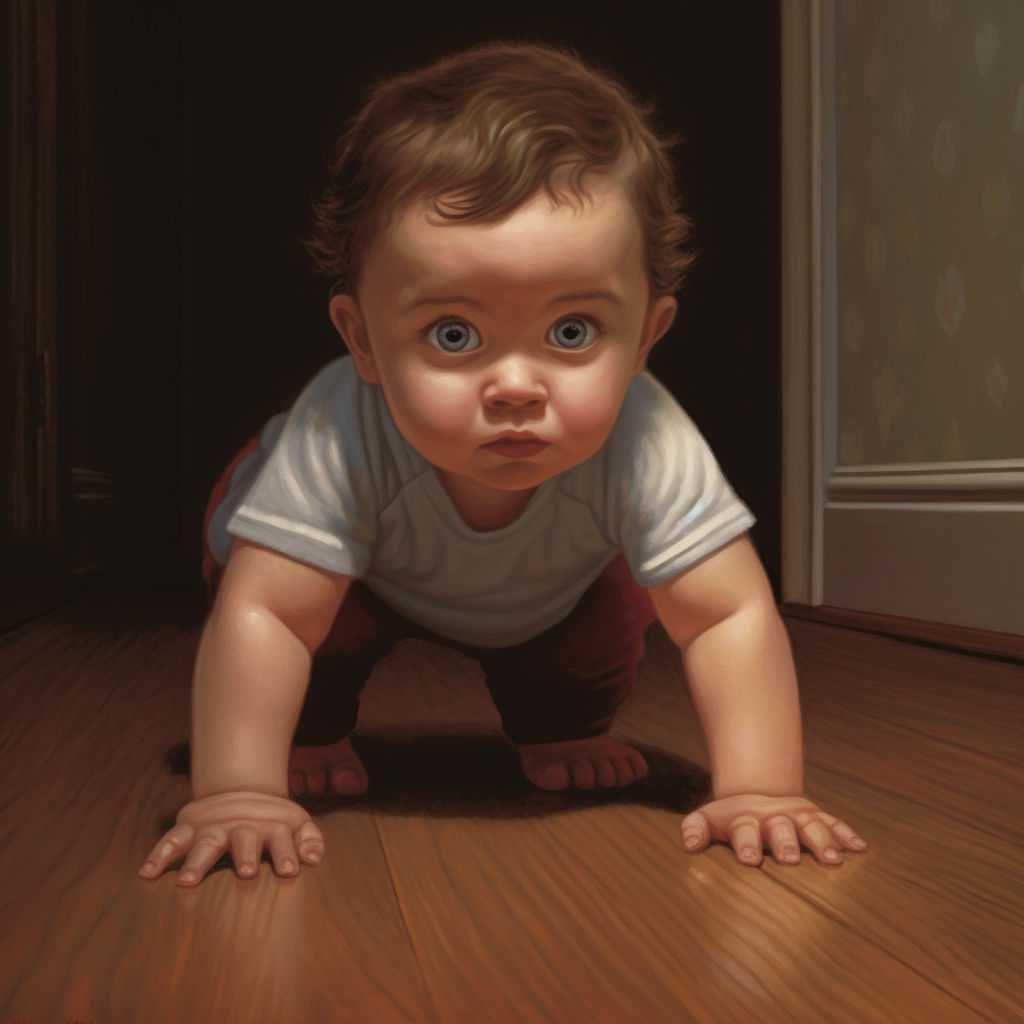Baby
Definition
Baby is a noun that refers to a very young child, especially one recently born. It can also be used as a term of endearment. As a verb, it means to treat someone with excessive care or indulgence.
Parts of Speech
- Noun
- Verb
Pronunciation
American English
- IPA Pronunciation: /ˈbeɪbi/
- Respelling: BAY-bee
British English
- IPA Pronunciation: /ˈbeɪbi/
- Respelling: BAY-bee
Etymology
The word "baby" likely originates from the imitative sounds or babbling made by infants, which evolved into a form of endearment and then into the standard term for a young child. It has Middle English roots, derived from "baban," an imitation of baby talk.
Derivatives
- Babies (plural noun)
- Babyhood (noun)
- Babylike (adjective)
- Babysit (verb)
- Babyish (adjective)
Synonyms
- Infant
- Newborn
- Toddler
Antonyms
- Adult
- Elder
- Mature
Usage
The term "baby" is commonly used to describe a very young child or an infant. It is also used as an affectionate term for loved ones. For example, "She cradled the baby in her arms," or "He called her baby as a term of endearment."
Related Terms
- Infant: A very young child, typically under one year of age.
- Newborn: A baby recently born.
- Child: A young person, typically under the age of adolescence.
Detailed Definitions
Noun
- A very young child, especially one recently born: Refers to an infant, usually from birth to a few years old.
- Example: "The baby smiled at her mother."
- A term of endearment for a loved one: Used informally to refer to a partner or loved one in an affectionate way.
- Example: "He whispered, 'Good night, baby.'
Verb
- To treat with excessive care or indulgence: Means to treat someone as if they are overly fragile or dependent.
- Example: "She tends to baby her younger brother."
baby



🇨🇳 Mandarin (Chinese)
- 婴儿 (infant/young child)
- IPA: /jíŋ.ər/
- Respelling: yíng'ér
- 宝贝 (term of endearment)
- IPA: /bǎo.bèi/
- Respelling: bǎobèi
🇮🇳 Hindi
- बेबी (Bebī)
- IPA: /beːbiː/
- Respelling: bay-bee
- शिशु (Shishu)
- IPA: /ʃɪʃuː/
- Respelling: shi-shoo
🇪🇸 Spanish
- Bebé
- IPA: /beˈbe/
- Respelling: beh-beh
- Niño(a)
- IPA: /ˈniɲo/
- Respelling: nee-nyo
🇫🇷 French
- Bébé
- IPA: /be.be/
- Respelling: bay-bay
- Enfant
- IPA: /ɑ̃.fɑ̃/
- Respelling: ahn-fahn
🇸🇦 Modern Standard Arabic
- طفل (Tifl)
- IPA: /tifl/
- Respelling: tifl
- رضيع (Radi')
- IPA: /raˈdiːʕ/
- Respelling: rah-dee'
🇧🇩 Bengali
- শিশু (Shishu)
- IPA: /ʃiʃu/
- Respelling: shi-shu
- বাচ্চা (Bāccā)
- IPA: /bacʧaː/
- Respelling: bach-cha
🇷🇺 Russian
- Младенец (Mladénets)
- IPA: /mlaˈdjenʲɪts/
- Respelling: mlah-dyen-its
- Ребенок (Rebenok)
- IPA: /rʲɪˈbjɛnək/
- Respelling: rye-byen-ok
🇵🇹 Portuguese
- Bebê
- IPA: /beˈbe/
- Respelling: beh-beh
- Criança
- IPA: /ˈkɾjɐ̃sɐ/
- Respelling: kree-an-sah
🇮🇩 Indonesian
- Bayi
- IPA: /bai̯/
- Respelling: bye-ee
- Anak
- IPA: /anak/
- Respelling: ah-nak
🇩🇪 German
- Baby
- IPA: /ˈbeːbiː/
- Respelling: bay-bee
- Säugling
- IPA: /ˈzɔʏɡlɪŋ/
- Respelling: zoyg-ling
🇯🇵 Japanese
- 赤ちゃん (Akachan)
- IPA: /akat͡ɕãɴ/
- Respelling: ah-ka-chan
- ベビー (Bebī)
- IPA: /bebiː/
- Respelling: beh-bee
🇻🇳 Vietnamese
- Em bé
- IPA: /ɛm ɓe˧˥/
- Respelling: em bay
- Trẻ
- IPA: /ʈʂeː˧˧/
- Respelling: chreh
🇰🇷 Korean
- 아기 (Agi)
- IPA: /a.ɡi/
- Respelling: ah-gi
- 베이비 (Beibi)
- IPA: /beɪbi/
- Respelling: bay-bee
🇹🇷 Turkish
- Bebek
- IPA: /beˈbek/
- Respelling: beh-bek
- Çocuk
- IPA: /tʃod͡ʒuk/
- Respelling: cho-jook
🇵🇰 Urdu
- بچہ (Bachcha)
- IPA: /bətʃːa/
- Respelling: butch-cha
- نومولود (Nawmolood)
- IPA: /nəwmʊloʊd/
- Respelling: naw-mu-lohd





